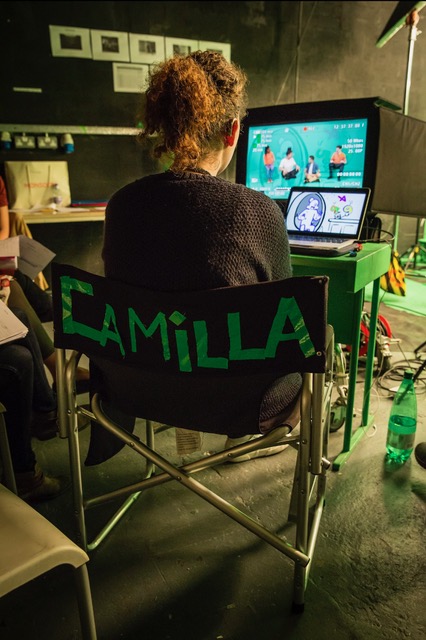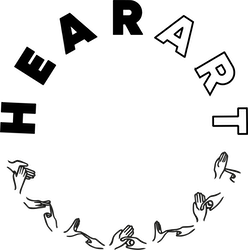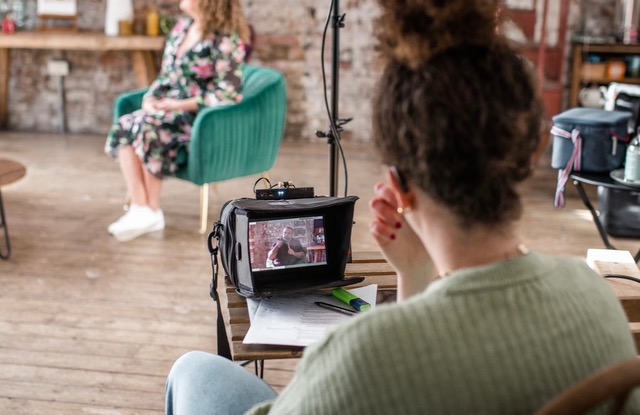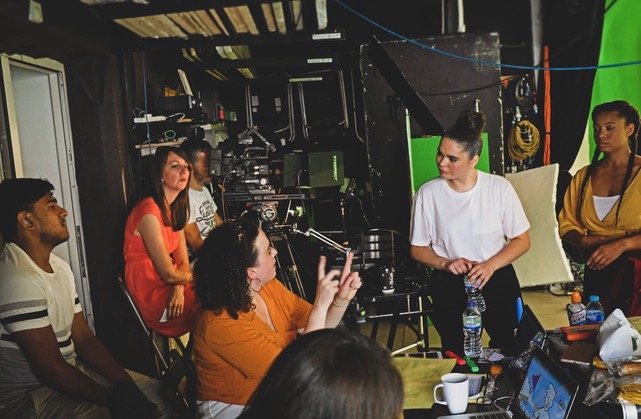A spotlight interview with producer Camilla Arnold
- Camilla, how did you first get into TV and film?
It was completely by chance! I was a poor student at university, looking for an opportunity to make money during the summer holidays. A friend sent me an advert for a researcher role in a deaf-led production company, Remark, and the rest was history. It was one of the best summers I’ve had where I fell in love with the TV and film industry and completely changed my career track from law to television/film!
- What made you choose BAON to produce?
When Slick shared the script that Daniel Deville had written, I immediately knew it was a film that I wanted to be part of. I wanted to see it on the big screen. I loved how beautifully written it was and the twist at the end (you’ll need to watch it to see what the twist is!). It was also a breath of fresh of air to see a character who just happens to be deaf written into a script without making a big song and dance about it.

I also saw it as a fantastic opportunity to bring onboard other deaf creatives to give them the opportunities they deserve and I’m so proud that BAON saw a 50:50 deaf/hearing crew come together. We had a full deaf assistant directors’ team (1st, 2nd, 3rd), deaf makeup artist and even deaf runners. It was the deaf creatives who really helped to elevate the film and they all worked so hard; at the end of the shoot days, they were the last to leave the set and poured in so much commitment and passion to the project.
- Was the process different to anything you have done previously and did you encounter any obstacles?
It was the first time that I had to raise 100% of the film’s funds, which was a huge challenge- especially in the post covid-19 world where we have the cost-of-living crisis. It took me almost a year to get enough funds to get the film off the grounds, but I relished the challenge and learned so much from the experience. I am very proud that we produced a film of an incredible standard with a very low budget. This is because of the generosity of our funders but also because of our incredible crew- who put their heart and soul into the film to make it very special on such a tight budget.
It was also a challenge to match what Daniel wanted. He is such an incredible, visionary director who is very clear about what he wanted. I had to secure iconic locations such as Leicester Square and Liverpool Street with the tiny budget we had. It took a lot of negotiations but it was totally worth it.
- What are the challenges for a deaf producer?
Opportunities. I think the film world is still not 100% ready for deaf producers and directors. Granted, things are changing, and attitude is better but I’m still trying to break away from being pigeon-holed as a producer/director for deaf related television/film. I would absolutely love to be approached to produce something that is not linked to sign language or deafness. I’m confident that the day will come, eventually!
- You are the first deaf female series producer for BBC Studios, which is absolutely wonderful. Do you feel that it comes with a lot of responsibility being a major representative of the deaf community?
It is a huge achievement, and it has taken a lot of blood, sweat and tears to get to that point- as clichéd as it may sound. It comes with a lot of responsibility as I am now in the position where I can use my place to advocate for the deaf community and deaf talent. There are so many talented deaf people out there and I see that it is my opportunity to open doors for them and show the mainstream that deaf people are just as good (if not better!) as their hearing counterparts. I also have a huge sense of responsibility to ensure that deaf people are represented authentically on our screens. A lot of work goes into this and I’m having lots of conversations in different areas to achieve this.
- What can be done to create more opportunities for deaf talents and what are the main obstacles the hearing community may not be aware of?
I’ve always said that there’s “nothing about us without us”. There seems to be more and more deaf characters in films and television nowadays- which is truly brilliant, but we must make sure that there is deaf input from the outset. A script that has a deaf character needs a deaf writer in the writer’s room to ensure authenticity. A deaf consultant is needed on set to work with the deaf actors. A deaf producer/director needs to be involved in the edit to ensure the cut points are right. I, along with the rest of the deaf community, can tell if a film or television series has had no deaf involvement from a mile off.
I also want to see more production companies being open to bringing in deaf creatives and putting them on mainstream productions. You’ll see the benefits as us ‘deafies’ bring a fresh perspective and I’ve always said that we bring out the best in contributors as we’re known for our superpowers: reading body language! You’ll reap the rewards…!
- Is there any advice you can give to a deaf creative wanting to start a career in the TV and film industry?
Go for it. Don’t be afraid. The industry is in a much better place now compared to when I started 15 years ago. People are more understanding and open nowadays. Get as much experience possible working in different production companies as you don’t want to get complacent but it’s also good for the production companies to have experience of working with deaf people. Make your own content too in your spare time as, sadly, we still need to work a bit harder than our hearing peers to prove ourselves.
Do also try and recommend other deaf people for work too as it’s always nice to have deaf peers working alongside you. I’m really proud of a recent production that I did where we had a 70% deaf crew. It was an empowering environment where the deaf crew members thrived as they were no longer ‘the only deafie in the village’.


